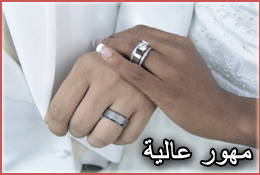-
 mamama saysThu 28th Jul 11@07:14 am*** I would you make an Arabic lesson about "the hidden camera",thanks
mamama saysThu 28th Jul 11@07:14 am*** I would you make an Arabic lesson about "the hidden camera",thanks -
What I can't seem to comprehend is why some women feel the need to ask for such high dowries. I feel like they are saying "I have a price on me and this is how much I cost!" The best marriage is the simple ones, ladies!
Great lesson about a real life tragedy. lol -
@Aliyah.m even I don't understand why some women feel the need to ask for high dowries. I mean the guy might be the perfect match, but they'd rather move him on if he can't pay up!
Nice PLC btw
-
The rendering to English of this custom as a "dowry" is somewhat startling inasmuch as in the West a dowry was historically something paid by the bride's family to the groom. Laws emerged to define and protect the relevant property interests. See http://en.wikipedia.org/wiki/Dowry The parallel applicable seems to be the "brideprice," but how that would work in the apparent absence of a corresponding payment from wife to husband (the Western form of dowry) seems unclear.
-
There are several words about marriage in Arabic. Can you gloss زفاف, عرس, سهرة, زفـّـة etc. These words aren't explained well for us beginners on the internet.
-
This dialogue is so completely from the male perspective. You skirt around the major issue--that it is very easy under Islamic law for men to divorce their wives. It is difficult to enforce his financial obligations to her or their children post-divorce. The women need this money as their security against being divorced or abandoned.
-
And another thing--the large number of unmarried women in the Arab region is a result of men choosing to marry foreign brides, from the Philippines or India for example, who are legally and financially utterly dependent on them. They would simply prefer a helpless woman with no family or alternative financial means who cannot argue with them or stand up for her rights.
-
I agree with your basic point of view, but insofar as meaning within any of these dialogues is concerned they are not intended as polemics. They need to get us the vocabulary and it makes it interesting to have a point of view within the dialogue, even if you don't agree with it. Armed with the vocabulary we are then empowered to say whatever we would like to say about this and more subjects. By the way there is a fascinating movie poking fun on the culture that got past the Saudi censors. It is named "Barakah meets Barakah," which is now available on NetFlix at least in the U.S. Wonderful and funny movie with great audio and English subtitles so you can follow along and fill in the gaps in your vocab.
-
I've just read the pdf (I haven't listened to the recording, so don't know what was said there).
I tend to see the dialogues in the way Chazyouwin does - like mini-dramas, expressing a spontaneous mood or attitude. The stance taken in each one is mainly there as something interesting to build the drama around, and center the language on.
In this case, given the importance of the topic, the dialogue would certainly have benefited from a female point-of-view. (In an Arabic class I attended, a female Arabic teacher told us that it's not as easy for men to divorce under Islamic law as westerners think, precisely because of the dowry).
But, as a labour-of-love, Arabicpod is mostly the work of a couple of individuals. For me, this is part of its charm, in that it reflects their spontaneous, friendly and funny personalities . But I guess it may also sometimes reflect their blind spots (which we all have - though I'm sure their perspectives will have developed since this dialogue was created.)
It did have an excellent female teacher for a while, Sierra Prasada, and I know Ehab and Moshaya would have loved to have had more female collaboration.
While not nearly as tragic an issue as that of of women exploited through forced marriages, temporary marriages etc, that of young men excluded economically from all hope of marriage is a genuine problem in various societies. -
Interesting Fiona that you mention Sierra. She was great and had tremendous output. But her dialogues were more conventional in setting out a lot of vocabulary with little memorable theme. Like a checklist. Aheb/Mohammed dialogues, like a smoky Islay malt, might sting a bit on the first swallow -- but that's interesting in and of itself.
Intermediate - High dowries
| July 27th, 2011 | 1 comment |
With the possibility of tragic consequences such as debt and divorce, the request for high dowries is currently a widespread problem across many countries in the Middle East. We go through a dialogue talking about this problem in which you will learn plenty of Arabic and some negatives of the culture.
 |
 MP3 Download MP3 Download
 PDF Transcript PDF Transcript
|
 Audio Transcript Audio Transcript Exercise Exercise PLC PLC Dialogue Dialogue |
|
| Basic | Premium | |
|---|---|---|
Join the Discussion

Random Word
جمال |
|

Advertisement


